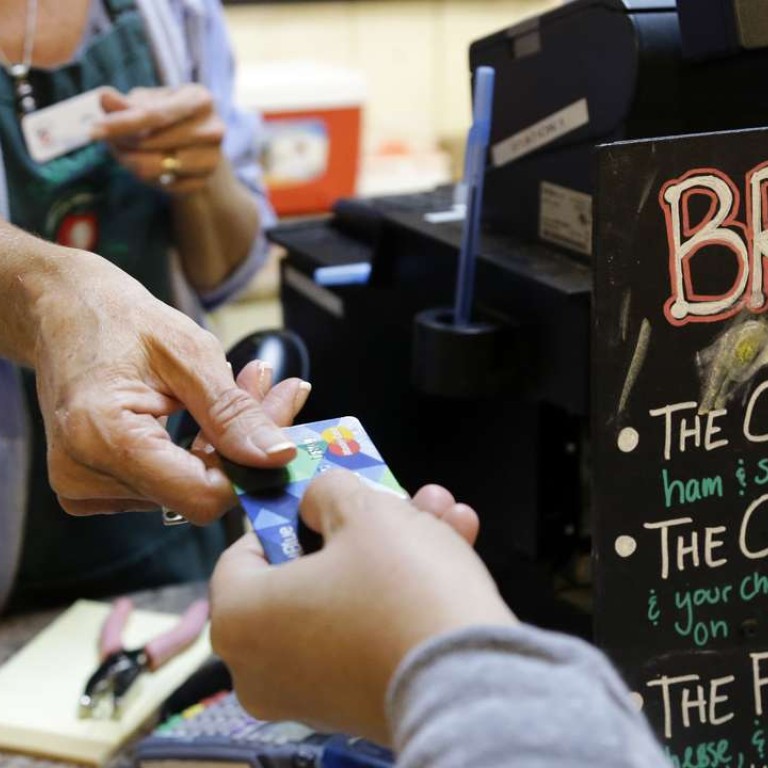
Hong Kong is falling behind in the race to a cashless society
The government and industry must ensure a convenient and safe infrastructure to allow the development of electronic payments
That one can just sign a credit card slip after a meal in a local restaurant or travel and spend with the same card in a foreign country may well be something that was unthinkable for our grandparents’ generation. Today, consumers have moved even further, paying with mobile phones or e-wallets. Biometric security features ensure that e-payments are just as easy and safe as parting with the money in your pocket. Technological progress over the past few decades has been so revolutionary that the world may well become cashless in the not too distant future.
But as far as Hong Kong is concerned, such a scenario remains remote. According to the Hong Kong Monetary Authority, Hongkongers have become even more obsessed with cash than before. The stock of Hong Kong dollars held by individuals reached 350 billion by the end of 2015, roughly double that in 2008. Averaging HK$48,000 per capita, the city came second in terms of cash held in a study covering the US, Britain, Japan and 11 other places.
While the number of credit card accounts in the city has more than tripled to more than 17 million since 1997, the total value of credit card transactions as a proportion of retail sales was only 35 per cent as of last year. That puts us way behind countries like Sweden, where some 80 per cent of purchases are now made electronically. The top 10 cashless countries all have 70 per cent or more of consumer payments settled without cash. Some places have gone further by limiting transactions in cash above certain amounts. For instance, cash transactions of more than 3,000 euros (HK$24,756) are not allowed in France.
There will always be those who prefer cash, out of technological resistance or simply a sense of security. No one should therefore be forced to pay in a way they are not comfortable with. But for those who are ready to embrace a cashless society, they expect the government and industry to put in place convenient and secure infrastructure. This will help Hong Kong become a genuine smart city.

